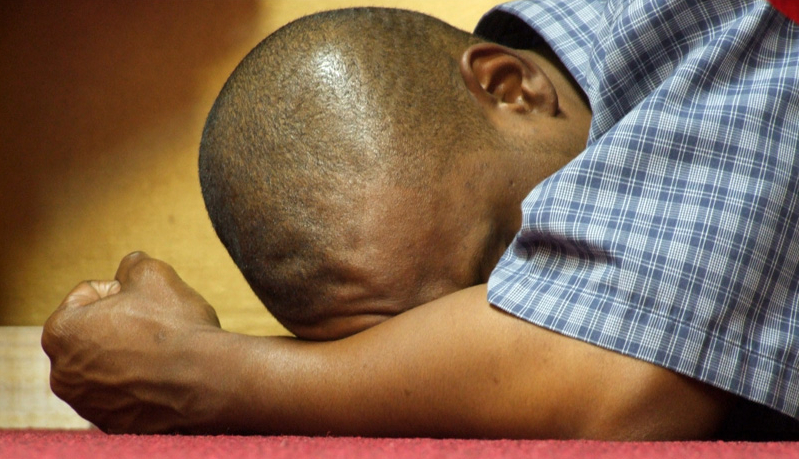
Over the past few months, I have been in touch with several black and brown friends, leaders in churches and mission agencies, who have been moved on from their positions. The conversations with them have felt like there is an intentional shift away from diversity commitments that were made five years ago. Yet, their diverse cultural perspectives are arguably more necessary today than ever in our churches and mission agencies.
We are fast approaching a diversity tipping point.
Four years ago, in 2021, we had a national census in the UK. The census took place in the midst of the COVID-19 lock-downs, a time of great uncertainty and social disruption. We only got to learn the outcome of all the hard work a year or so later. It was then that we learned something significant about the changing face of our society: there had been a marked increase in what we refer to as “non-white British people” in the country.
In the 2011 census, white British people comprised 80.5% of the population. By 2021, that number had dropped to 74.4%. Other groups saw considerable growth in the same period—"Other White" rose from 4.4% to 6.2%, "Mixed" from 2.2% to 2.9%, "Asian" from 7.5% to 9.3%, and "Black" from 3.3% to 4.0%. Essentially, 20 percent of the country’s population is African, Asian, and Latin American. The figure climbs up to 25 per cent when white non-British people are included.
Increasing ethnic and cultural diversity of the population is mirrored in the Christian community.
These changes are not just sociological statistics; they have deep and lasting implications for the church in the UK. The increasing ethnic and cultural diversity of the population is mirrored in the Christian community.
More and more, churches across the country are becoming multicultural spaces, shaped by different worship traditions, theological perspectives, and cultural expressions of faith. In particular, the growth of African, Caribbean, Asian, Latin American, and Eastern European congregations has brought renewed vitality, spiritual depth, and new ways of doing church that challenge inherited British norms.
Diversity is the best survival strategy, missionally speaking.
This diversity is a gift—but it also poses significant challenges. It requires us to re-imagine what unity in Christ looks like in a context where cultural differences are real and deeply felt. It compels the British church to move beyond tokenism or mere inclusion and toward genuine intercultural discipleship, mutual respect, and shared leadership.
As many countries in the West become more diverse, so too must our theology, our sense of mission, and our ecclesiology.
It calls us to recognize that the face of Christianity in the UK is no longer predominantly white and Western. Instead, it is global, diasporic, and richly diverse—a reflection of the worldwide body of Christ.
As many countries in the West become more diverse, so too must our theology, our sense of mission, and our ecclesiology. The changing demographics invite churches to listen more attentively to voices from the margins, to celebrate different ways of encountering God, and to cultivate communities that reflect the full breadth of God’s kingdom.
The census data, in this sense, is not merely a government report—it is a prophetic signpost pointing us toward a new ecclesial reality that is already here, whether we are ready for it or not.
Multicultural worship spaces are no longer optional for us.
Worshiping in multicultural communities reflects the church’s unity in diversity and offers a glimpse of the global body of Christ gathered together. It goes beyond including songs from different cultures to creating worship where all expressions are valued and integrated. This includes diverse languages, musical styles, and worship practices.
It challenges congregations to step outside their cultural comfort zones and encounter God through others. Multicultural worship is an act of justice and hospitality, dismantling cultural dominance and affirming that no one culture owns the way to worship. Done well, it deepens community, invites the Spirit’s movement, and reflects God’s inclusive kingdom.
For missions organizations, increasing cultural diversity demands a shift from a Western-centric model.
For missions organizations, increasing cultural diversity demands a shift from a Western-centric model to one that reflects a truly global church. Global missions is no longer from the West to the rest, but from everywhere to everywhere. Agencies must embrace intercultural leadership, include voices from the Majority World and diaspora communities, and build reciprocal partnerships.
Missionary training should prioritize cultural humility and collaboration across differences. This shift calls for structures and strategies that reflect the diverse body of Christ and the Spirit’s work in all cultures.
Missions organizations must become facilitators of global, inclusive, and mutually enriching expressions of God's mission.
Originally published on Harvey's Substack, Global Witness Globally Reimagined. Republished with permission.
Dr Harvey Kwiyani is a Malawian missiologist and theologian who has lived, worked and studied in Europe and North America for the past 20 years. He has researched African Christianity and African theology for his PhD, and taught African theology at Liverpool Hope University. Harvey is also founder and executive director of Missio Africanus, a mission organization established in 2014 as a learning community focused on releasing the missional potential of African and other minority ethnic Christians living in the UK. More recently he became African Christianity Programme Lead for CMS (UK) Pioneer Mission Training.





